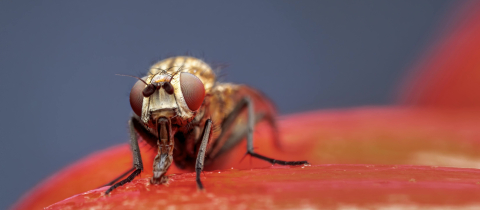For animals wanting to find the healthiest mate, cortisol (stress hormone) levels in their mates could have big implications. Luckily, it appears that animals detect cortisol levels through its interactions with other hormones, namely testosterone. Studies have shown that cortisol can block testosterone's actions, causing an animal to engage in more emergency behaviour such as fighting or fleeing, and less testosterone-influenced behaviour such as mating.
This self-preservation system, however, has another effect too- animals with high cortisol levels have low testosterone levels, which amongst other things, causes higher pitched voices. So it seems that animal’s mating calls convey even more than previously thought!







